People
Bob Lewis
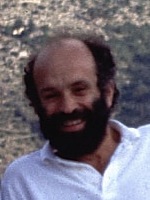
Reflection: Bob's analysis of the reasons for lack of progress in artificial intelligence was prophetic and helped me to avoid spending too much time investigating intelligent tutoring at a time when it was under serious consideration and instead encouraged me to focus on the decision-making and responsibility of learners in using the computer as a tool.
Although Bob was my director for only one year, he made a great impact on me in my first year as a researcher working in higher education. He was an inspirational, technically-minded, hands-on person who could also reflect and theorise the issues we faced very effectively. His approach to managing the team was empowering, but also he had clear ideas of the action research process we should be engaged in.
He impressed me with his early grasp of the problems of interoperability and his determination to solve them. He also clearly analysed the challenges of artificial intelligence, pointing out that the difficulty of modelling the mind was immense and not likely to be solved soon and that our computer resources were not technically advanced enough to match the complexity of such a model (as might be speculated).
Bob invited me to collaborate with him after he left Computers in the Curriculum, in teaching on residential courses and, most enjoyably, on an international UNESCO summer school in Yugoslavia.
(Words: 258 )
Margaret Cox
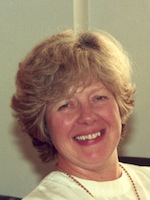
Margaret replaced Bob Lewis as head of the Computers in the Curriculum project in 1981 and I worked with her closely until 1990. Her experience of developing software extended into the seventies as part of the National Development Programme in Computer Assisted Learning funded work at the University of Surrey.
Reflection: Margaret taught me to be pragmatic, caring and nevertheless concerned to do the right thing at high levels of quality. I learnt how to formulate research with rigour through her advice.
We often debated about the best strategies and on one occasion I called her 'Mum' in the heat of an argument!
(Words: 143 )
Royston Sellman
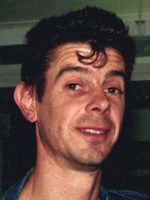
Reflection: It was discussions and debates with Royston that deepened my knowledge of quality in programming and a pedagogy of computing.
Royston is the most down to earth character who loves his work in solving simulation problems and designing software. His talents ranged from mathematical analysis to a real understanding of the nature of programming. Royston raised my game with respect to the best way to programme and opened my eyes to a theoretical world of computing that I had not encountered. We would argue about the relative merits of Pascal, Smalltalk, Lisp, Logo, Basic and Hypertalk. Royston's groundedness also helped me avoid the worst excesses of naivety and idealism
(Words: 150 )
David Riley
Reflection: The decision making inherent in simulations we created was important but the creativity and analysis demanded in modelling itself was more powerful for learning.
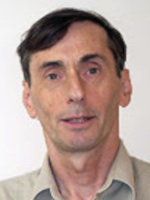
David had a particular interest in modelling and background in geography leading simulations of gas pipelines, software for evaluating location decisions and ultimately to the proposal to develop the Planet Earth CD-ROM as part of the Renaissance Project.
Together we explored how best to offer the learner a toolkit to work with multimedia in a constructivist sense.
We also worked to offer design advice to colleagues in the Computers in the Curriculum project.
Finally we saw that simulation, although valuable, did not achieve the depth of understanding that modelling could.
(Words: 171 )
Sam Deane
Reflection: Sam's influence on me was profound, because he had delved deeper into the issues of software development and yet remained in touch with the wider issues of designing tools for learning. I began to understand some of the profound challenges of developing software in a team and how to manage a quality process.
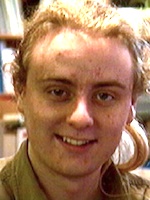
Sam accompanied his friend from Hampstead School to meet me at the Computers in the Curriculum Project in Chelsea around 1990. His friend had been recommended to me by my first wife Ursula, then head of mathematics at the school, to consider a summer job as a programmer with us. In the end Sam came instead!
Later, after completing his degree in Computer Science at Bristol University, Sam joined Ultralab to program some of our most innovative pieces of software for learning. Together with Alice Mitchell we designed immersive software for language learning.
He left to continue a career developing substantial games software for some of the major industry players and remains just in touch even now.
(Words: 208 )
Stephen Heppell
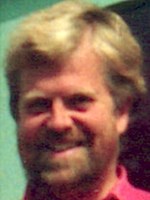
Reflection: Stephen introduced me to concepts of social justice, learner-centredness, multi-modality, vision, the benefits of neologism (!) and the confidence to take action. I learnt how to manage change, manage people and direct innovation under his leadership.
It is safe to say that Stephen Heppell's thoughts and actions are the biggest influence on my mature practice.
I consider the agenda he set for Ultralab as one I fully subscribe to, and his clarity of purpose to be simply inspirational.
The values he proposed of inclusiveness and caring have become my own and the example he set in practically exhibiting such values is the standard I aspire to. His willingness to roll up his sleeves and make things happen was infectious and his ability to leave the past and look forward unparalleled. It has been my pleasure to have been his critical friend, but rarely have I found fault beyond the trite. He was always generous in listening to my sometimes overly analytical perspectives, but our partnership was at its best when I found myself complementing his talents with my own.
(Words: 253 )
John Davitt
Reflection: John has helped me develop practitioner theories for my design work and hone them with critical debate.
John's first book 'New Tools for Learning' is subtitled 'Accelerated learning meet ICT' which describes perfectly the effect of good conversation with him. I have been learning with him for twenty years now, and every time new ideas blossom. His sense of overview of the ICT scene is profound and clarifying, with useful critiques and clever catch-phrases which act as aide -memoires. My favourite is 'S&N' which stands for subtlety and nuance - a lens for examining technology which so often is more like a digitally blunt instrument compared to the refined perception of human touch, hearing, sight and vision - to sniff nothing of smell!
(Words: 165 )
Carole Chapman
Reflection: Carole inspired me with her no-nonsense hard work, unwavering learner-centred perspective and values-oriented thinking. I learnt from her about social science, gender and social justice.
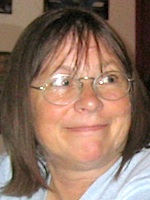 Carole's finest asset was her ability to see things from a young person's point of view and to appreciate the power relationships inherent in schools and institutions. She anchored many people in Ultralab, supporting them with critical friendship and moral support. Her determined willingness to take on sponsors and civil servants and argue the case for the radical innovation that she proposed was inspiring.
Carole's finest asset was her ability to see things from a young person's point of view and to appreciate the power relationships inherent in schools and institutions. She anchored many people in Ultralab, supporting them with critical friendship and moral support. Her determined willingness to take on sponsors and civil servants and argue the case for the radical innovation that she proposed was inspiring.
(Words: 141 )
Dai Griffiths
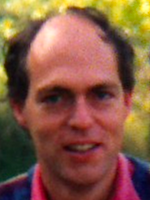
Reflection: Above all else, discussions with Dai on epistemology provided a valuable reflective debate which has led to a clearer understanding of knowledge for me.
Dai introduced me to a perspective on culture in learning that I had no concept - the separation of nation and language and culture. His linguistic knowledge helped me understand the challenge faced by minority language groups and together with Stephen Heppell and Greta Mladenova we published on this topic. The discussions and designs we made regarding the Etui toy for early learners built a more profound base of practical, developmental research. Dai's work in the TENCompetence project combined well with my own in developing competency frameworks and interactive software for Macmillan Cancer Support.
(Words: 179 )
Tom Smith
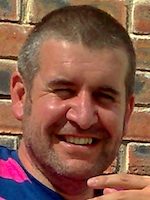
Reflection: I learnt to see through surface meaning and understand the motives and forces that shaped people's behaviour through discussions with Tom.
Tom joined Ultralab as a volunteer after reading about us in a magazine and realising we were just over the road! His determination to create complex and powerful server software mixed with his clarity about design issues inspired me to do the same. We shared much analytical thinking to make sense of the online, multimedia, interactive and participative opportunities that burgeoned in the mid-nineties.
(Words: 137 )
Alice Mitchell
Reflection: I learnt from Alice a deep understanding of learning languages which clarified for me the need for some rote learning in a motivational context to learn basic facts and correct pronunciation together with a more analytical and creative approach for the deeper structural knolwedge.
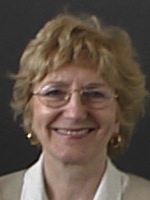
Alice was a very articulate and high quality teacher, developer and pedagogue in language learning.
We worked together to advance her concept of TecLab - a re-invented language lab linked to and funded by the Training and Enterprise Council which focussed on vocational language learning. Her determination, clarity of vision and extensive knowledge of what worked in language learning made for a very productive partnership.
Reflection: The techniques of multiple text track interactive video materials were completely new, as was the HyperCard fuelled technique for their manufacture, allowing editing of detail and 'recompilation' to achieve accurate results - vital for language learning.
We created innovative interactive video materials on the computer using multiple text track movies in Apple's Quicktime software (my contribution) with engaging social and business plots in the style of a soap (Alice's contribution) with a substantial coverage of learning standards in French and German. The resulting comprehensive learning resource was titled Ultra-Language-Lab and was successfully sold to a commercial provider of the time.
Later we worked with Sam Deane for the Teleste company directed by Pekka Lehtiö to create an immersive environment for language learning, which pre-dated Second Life by many years.
Alice has sadly passed away and is much missed.
(Words: 304 )
Pekka Lehtiö
Reflection: Pekka with his patient and generous attitude taught me much about the challenge of large scale development and managing a relationship with a commercial partner.
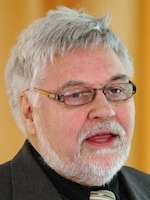
He notably explained to me the idea of a 'Chinese contract' which was designed to offer the most positive outcome for both customer and client even if the project was curtailed.
We negotiated such a contract, and Sam Deane and Alice Mitchell worked with me and others to develop Aardvark - software to allow the development of three dimensional navigable spaces where linguistic challenges would be confronted in relevant and meaningful contexts, but with considerable freedom to explore.
These were very early days for such ideas, especially our intent to make the spaces constructable by language teachers rather than developers. In that sense it was a forerunner to such spaces as Second Life. Pekka encouraged us to be ambitious but also attempted to maintain some control over our delivery milestones! At the end of the project he invited us to Finland to present over two days to the development team based in Turku.
(Words: 239 )
Stephen Powell
Reflection: I am particularly pleased to have developed my knowledge of Cybernetics through working out the ideas with Stephen and applying them to our mutual experience and practice. We also tackled several social science and design research methods together, gaining confidence from sharing the challenge.
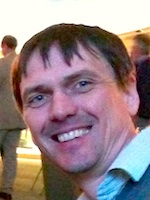 Stephen's inquiring, direct and business-like manner has helped immensely to focus on publication and the completion of this thesis - he has acted as my main formal and informal supervisor (as the university changed its mind about the legitimacy of that rôle when you are colleagues and students). His interest in the systems of higher education has expanded my knowledge through the debates, planning and co-research we have undertaken. As a supervisor of my PhD he has helped me to plan milestones, provide moral support and shared his enthusiasm to see it completed. There are few people who have such a good and objective knowledge of the working of a university as an enterprise.
Stephen's inquiring, direct and business-like manner has helped immensely to focus on publication and the completion of this thesis - he has acted as my main formal and informal supervisor (as the university changed its mind about the legitimacy of that rôle when you are colleagues and students). His interest in the systems of higher education has expanded my knowledge through the debates, planning and co-research we have undertaken. As a supervisor of my PhD he has helped me to plan milestones, provide moral support and shared his enthusiasm to see it completed. There are few people who have such a good and objective knowledge of the working of a university as an enterprise.
(Words: 208 )
Others
Abject apologies to anyone who I have left out or misrepresented - it probably means you were so close, I have failed to notice, like water to a fish :)
Thanks to:
My supervisors, formal and informal: extra-brother Stephen Powell, Keith Alexander, Dai Griffiths, Bill Olivier, Margaret Nelson, Gill Green.
My family
My mother Elizabeth and father Richard who laid the foundations of a life-long passion for education, mathematics, science and appreciation of the arts, crafts and music (to say nothing of some manners, reading and writing, commitment and confidence).
My sisters Elizabeth and Bridget and brother Seán, who debated minutiae for every minute of my childhood and still haven't given up, making me what I am.
My teachers at school, too many to mention, who made me think and gave me confidence.
My companions in my teens in Dumfries (Scott Kerr, Chris McKinnell, Judith Gallon, Jimmy Archibald) and in my late teens in Barking (Terry H).
My flatmates at Kings College London, Steve Robson and Steve Wood (Wilf) and student friends John Hughes, Cathy Sims, Susan Beacham & Richard Wakeford.
Ursula Millwood, my first wife, who suffered my obsessions for the first half of my career and partnered me in many adventures both professional and personal including the gift of my first two children, Patrick and Ben.
School teaching
Alistair Buckenham, Mathematics teacher at St Marylebone Grammar School in 1976, who inducted me into teaching and helped me find the attitudes, values and practices which have endured ever since.
Oleg Liber, Mike Humphries, Europe Singh, Brian Harrison, Keith Philip - the mathematics department at Scott Lidgett School who supported my growing interest in developing learning materials and assessment.
Computers in the Curriculum
Bob Lewis, Peter Smith, Margaret Cox, David Riddle, Deryn Watson, David Riley, Grant Alderson, Royston Sellman, Angie Donoghue, Sophie McCormick, David Squires, Keith Shaw, Diane Moody, Eva O'Donoghue, Colin Smith, Alan Edis, Marianne Atherton, Jean Seechurn, Terry Hinton, David Johnson, Jonathan Osborne, Joan Bliss, Paul Black, Margaret Brown, Kath Hart, Jon Ogborn, Ian Kilberry, Angus Willson, Steve Hurd, Ken Randall, Margaret Brown, Kath Hart and many others in the Computers in the Curriculum Project, Educational Computing Unit and Centre for Science and Mathematics Education at Chelsea College (subsequently King's College) throughout the eighties as I grew from school teacher to education lecturer and researcher.
Long term friends amongst colleagues I met in the '80s and '90s including Ian Sillett, Gary Stevens, Tony Parkin, Steve Oram, Mike Aston, Diana Freeman, Mike Bostock, Peter Bratt, Tony Kiddle, Vivi Lachs, Phil Langshaw, Norbert Pachler, Mary Webb, David Hassell, Bill Tagg, Tony Wheeler,
Ultralab
Stephen Heppell, Ann Constable, Stan Owers, Sheila, Andrew Wood, John Sharkey, Sam Deane, Anne Bradbury, Nikki Gamble, Nick Easingwood, Heather Crouch, Chris Curran, Geoff, Sue Clacher, Tom Smith, Lys Johnson, all from early days as Ultralab was formed and then all my colleagues in Ultralab in the period until 2006 when it closed, some of whom are in this photo:
My best list of all of them is:
James Brain, Tony Browne, Lori Camm, Craig Carey, Carole Chapman, Ann Constable, Mark Constable, Antonia Coppen, Andy Cunningham, Sam Deane, Martin Doherty, James Dorling, Jonny Dyer, Matthew Eaves, Tim Ellis, Colin Elsey, Jonathan Furness, Alison Gee, Jean Gray, Claire Gregory, Andy Grey, Maureen Gurr, Rhys Harries, Colin Harrison, Graham Hart, Michael Hartley, Melissa Heppell, Stephen Heppell, Clare Ingram, Jean Johnson, Lys Johnson, Sarah Jones, James Kadirire, Ioanna Kita, Kostas Kokkinopoulos, Geraint Lang, Hal MacLean, Paul Martin, Lesley McGuire, Hilary Messeter, Alice Mitchell, Greta Mladenova, Malcolm Moss, Gerome Oldfield, Stan Owers, Simon Patton, Shirley Pickford, Nick Platts, Stephen Powell, Leonie Ramondt, Gina Revill, Gill Roberts, Anthony Russell, Hamish Scott-Brown, Alan Seargent, Teresa Selvey, Beverley Simpkin, Andy Simpson, Matt Sisto, Manoah Smiley, Tom Smith, Tom Stacey, Vicki Swan, Gail Taylor, Ian Terrell, Kevin Thompson, Craig Tindal, Ian Tindal, Richard Tydeman, George Variopoulos, Alison Wade, Weiya Wang, Jean Whitehill, Tim WIlliams, Lindsey Wingate, Rex Wingate and Kirsty Wooldridge.
Greta Mladenova, colleague at Ultralab and my second wife who inspired much creativity, worked tirelessly, suffered my pedantry and raised the third gift, Sasha.
My PhD students (and colleagues), from Ultralab days - Carole Chapman, Abraham Doron, Nili Naveh, Anthony Russell, Geraint Lang, Lesley McGuire, Mark Penny and my supervisor colleagues Gill Robinson and Vernon Trafford.
Colleagues at Anglia Ruskin University - Roger Clark, Colin Harrison, Woody Caan, Mike Salmon, Dawn Hillier, Diana Powell, Tony Powell, Robin Smith, Michael Haynes, Mick Betts, Gina Wisker, Richard Winter, Maidi Brown, Sharon Waller and many others, and those on projects - Marc Blasband, Josep Blat, Mimo Caenepeel, Steve Lay, Robert Harding, Joachim Wedekind.
Nick Billowes, Vince Ham and Derek Wenmoth who built and sustained Ultralab South which become Core Education in New Zealand with Ali Hughes, Ronnie Davey, Julia Atkin, Carole Moffatt and others at Core having a huge influence on my thinking. Also Paul Rodley at Christ's College, Paul Cathro, Murray Leach and many other New Zealand colleagues.
Core Education UK
Maureen Gurr, Malcolm Moss, Alison Gee, Sarah Jones, Rex Wingate, Graham Hart who helped form Core Education UK, and Steve Capper who helps sustain it still.
University of Bolton
Oleg Liber, Julie Halliwell, Mark Johnson, Paul Hollins, Stephen Powell, Bill Olivier, David Sherlock, Scott Wilson, Simon Grant, Wilbert Kraan, Adam Cooper and all the others in the Insitute for Educational Cybernetics at the University of Bolton, including PhD students I help supervise - Ian Wilkinson, Michelle Singleton, Lynn Campbell, Tim Goddard, Kesiena Clement-Okooboh, Roz Fox.
Margaret Nelson has offered her experience and support freely as I have struggled with this PhD, and acted as a critical friend too many times to count and connected me to my supervisor, Keith Alexander. Other influential colleagues at the University of Bolton include Ebun Akinsete, Mohammed Tammo, Bobby Nisha, Donna Vick, Grainne Gordon, Hilary Birtwhistle, Rob Campbell, Paul Birkett, Gill Green and Sue Burkinshaw, Mike Lawrence, Mike Lomas, Peter Marsh, Marie Norman, Patrick O'Reilly.
Professional
Information Technology in Teacher Education (ITTE) colleagues of long standing including Martin Owen, Avril Loveless, Sarah Younie, Tony Fisher, Bob Fox, Mike Hammond, David Benzie, Graham Jarvis, Bill Gibbon, Jon Coupland, Roger Keeling, Sue Brindley, Steve Kennewell, Chris Higgins, Peter Twining, Michelle Selinger, David Longman, Libby Jared, Suresh Jethwa, Margaret de Jong-Derrington, Angela McFarlane, John Potter, Bridget Somekh, Neil Stanley, Peter Twining, Jean Underwood, John Woolard,
Other colleagues in the world of education that have provided support, advice and provocation include Gabriel Goldstein, Brenda Gourlay, John Davitt, Merlin John, Eileen Freeman, Bryn Holmes, Brendan Tangney, Clive Holtham, Sergei Christochevsky, Andrei Fedoseyev, Todorka Damianova, Leo Højsholt-Poulsen, Paul Clark, Eddie Gulc, Andy Black, Terry Freedman, Steve Moss, Charles Crook, Leon Cych, Doug Brown, Roberta Weber (who I should have got to be my supervisor), Roger Carlsen, Elizabeth Oldham, Thomas Winkler, Marilyn Leask, Darren Leafe, Sandra Crapper, Sue Owen, Keri Facer, Dylan Wiliam, Christina Preston, Mary Ann Kernan, Hidayah Amin, Stephen Carrick-Davies, Drew Buddie, David Garland, Stephen Capper, Linda Thompson, Hannah Davies, Richard Green, Mary Harris, Tina Preston, Dave Smith, Tore Hoel, Vana Kamtsiou, Joy Hooper, Bill How, Simon Humphreys, Paul Lefrere, Gillian Lovegrove, Peter Maher, Tim Marshall, Harvey Mellar, Peter Mitchell, Sean O'Sullivan, David Baugh, Ian Wilson, Julian Coultas, Mike Rumble, Seb Schmoller, Jim Shelston, John Siraj-Blatchford, Lampros Stergioulas, Dan Sutch, Ralph Tabberer, Tim Tarrant, Matthew Taylor, Sydney Thornbury, Jamie Tuplin, Sue Walton, Mick Waters, John Williams, Theo Wright and Arthur Tatnall.
Partners in the professional and business worlds including Alan Bennett, Chris Binns, Bob Rogers, Alan Matcham, John Rudkin, Michael Ambjorn, Tilly Blyth, Cathy Derrick, Greg Childs, Iona Walters, Andrew Chitty, George Auckland, Alan Greenberg, David Heath, Caroline Hook, Aynsley Jardin, Steve Moore, Andy Pendry, Bob Rogers, Tarek Shawki, Barbara Strebel, Conrad Taylor.
My good friends in Brentwood in the Labour Party, Educating Brentwood, CND, The Brentwood Arts Cinema Club, Brentwood Community Print and pottery at The Fold. The many friends made at the Royal College of Music.
Personal
My extended family of extra-brothers-and-sisters-in-kind: Detty, Stephen Powell, Joy Hooper, Jed Burroughs, Hazel Bartlett, Tony Bartlett, Sally-Anne Maidment, uncles, aunts, nieces - Sineád, Maeve, Catlin, Tess and extra-special-niece Lily and nephews - Watty, James, Hal, James Burrows, extra-special-nephew Martin Bartlett have all supported me and egged me on.
Finally I must thank my fantastic children, Patrick, Ben and Sasha who have inspired and exemplified so much of what I value in life through their own (and independently developed) moral framework, determination and sheer hard work.
(Words: 1514 )


